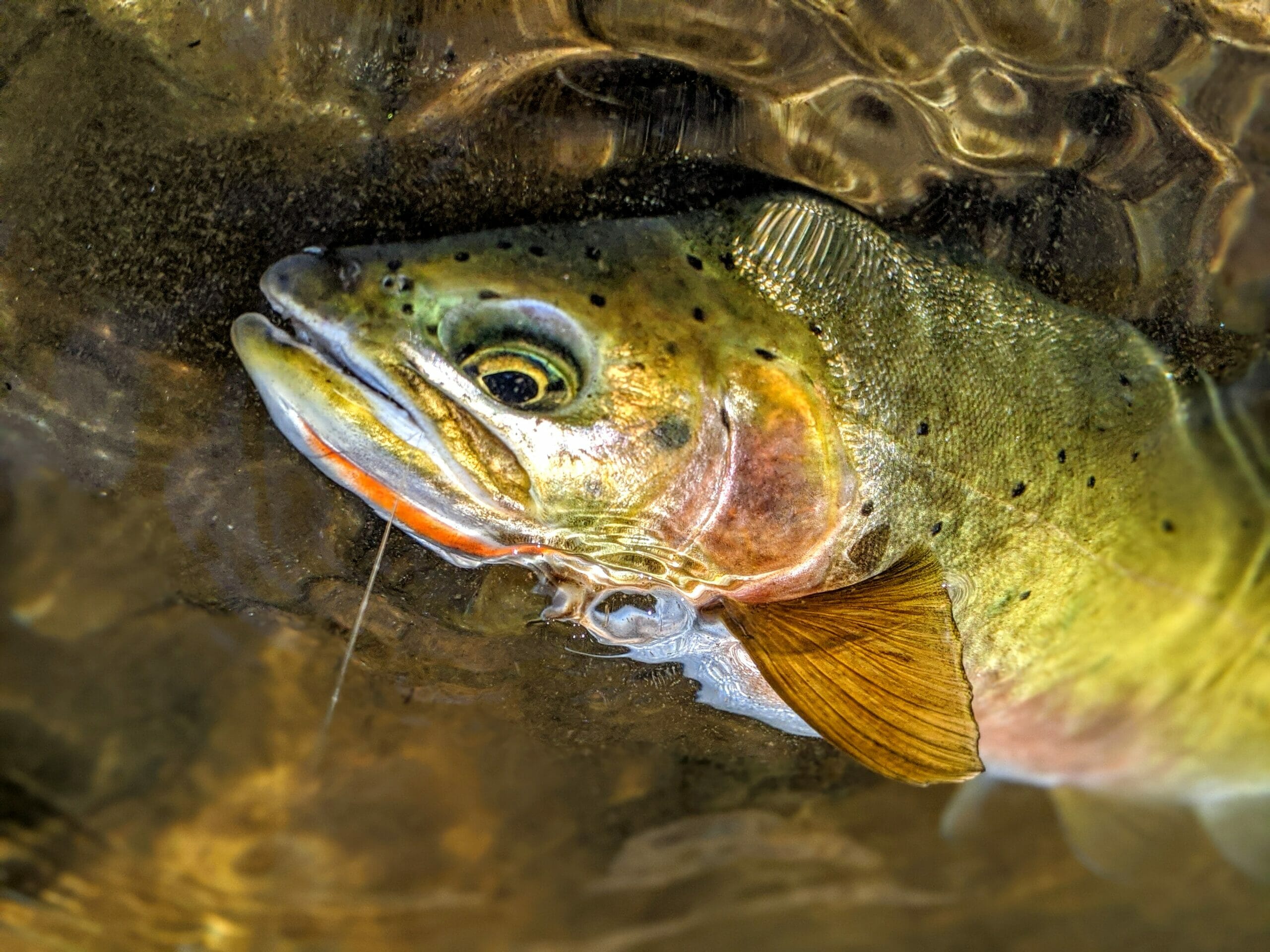It’s close. I can feel it. Thanks to a sub-par winter, I’ll be able to get up high into the Caribous early this year and start chasing eastern Idaho’s native cutthroats, likely before Memorial Day, which is unheard of.
It’s going to an early summer. And, most likely, a long summer.
One of the very few benefits of a drought, I suppose. While I’m excited by the prospect of returning to backcountry trout after months and months away, I know it’s just too damned early. What bounty that might come early thanks to a retreating snowpack will surely result in a torturous late summer, where water levels — assuming we don’t get a blast of late-spring snow — will be dangerously low for trout and deathly warm in some instances.
On one hand, I’ve watched as fisheries all over the West have endured this fate over the last few decades. Every few years, it seems, it’s just our turn. I remember writing stories about fisheries closures in Yellowstone National Park some 20 years ago thanks to warm water and unusually warm temperatures. It wasn’t an anomaly, as hoped by many, but instead has become the norm.
Sadly, we’re watching our trout fisheries — and our fishing opportunities — suffer and shrink in real time. And this is what it looks like … low and warm water, earlier starts to summer, later arriving autumn. We don’t live in the same world we did years ago, where cycles were more dependable, and where sometimes it was July before anyone could dependably fish for trout in the mountains of eastern Idaho.
We’re past the “don’t believe in” stage of climate change. If you don’t believe now, I got nothing for you. We’re now in the “God, I hope we can do something about it” phase. And maybe we can.
But first, we need to understand how water in the West came to be so precious … and in such short supply. This week, Trout Unlimited is launching a new series … a “deep dive” if you will … into the Western water quandary. Check out this Q&A with TU’s Sara Porterfield, who promises to start a complex discussion about the water woes in the West and send us on an important journey that, as anglers, we must come to understand.
If wild trout matter to you, the water situation in the West should matter, too. Without one, the other will continue to dwindle. Is that a future you want to face?



